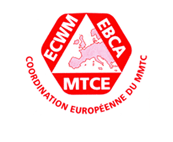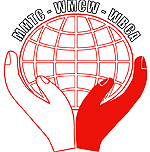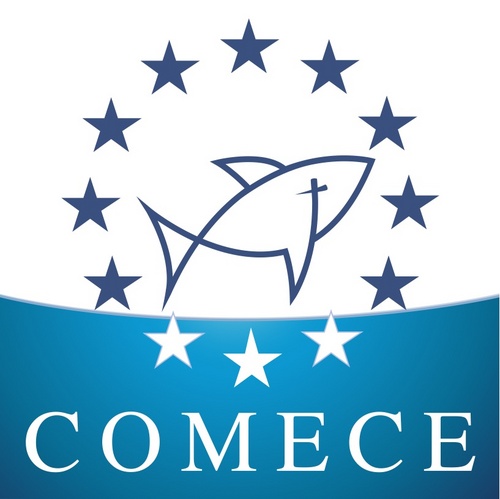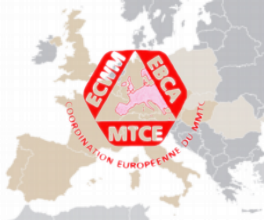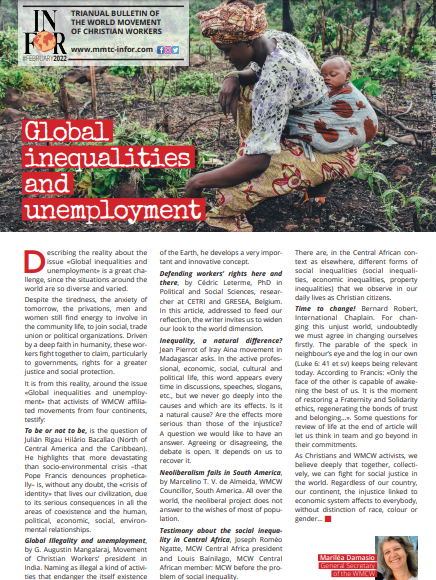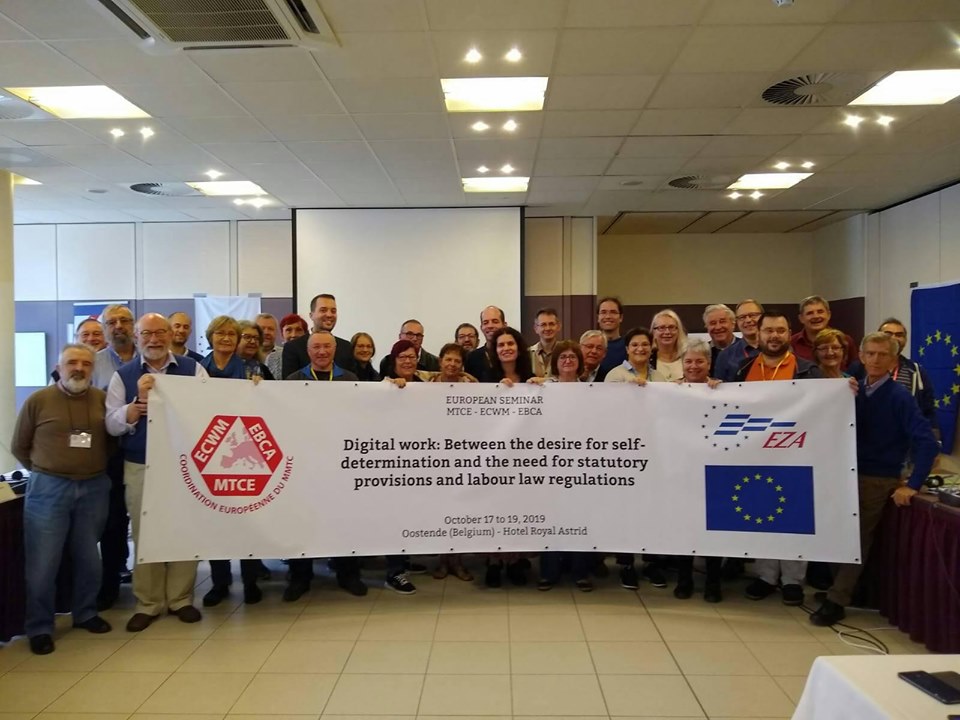
Final statement of the Seminar "Digital work: between the desire for self-determination and the need for statutory provisions and labour law regulations ", held from 17th to 19th October, 2019 in Ostend (Belgium)
A dignified life for EVERYONE in the digital age!
The European Christian Workers Movement (EBCA/ECWM/MTCE) held a seminar entitled "Digital work: between the desire for self-determination and the need for statutory provisions and labour law regulations” from 17-19 October 2019 in Ostend, Belgium. 37 representatives of member organisations from more than 11 European countries participated in the seminar, and all contributed their experience and perspectives.
Conclusions of dialogues
Digitalisation is in full swing, advancing at an accelerated pace and changing our lives in both the private and working environments. It is a phenomenon that affects our whole society and, obviously, has a great attraction, which feeds its development and importance. However, this phenomenon - like many others - can be described as ambivalent and we understand that it is our task to contribute to the configuration of this process by understanding its principles, reflecting its effects on the basis of our horizon of values and considering how and what we can contribute to its configuration as actors. It is also important that we examine the use of digital media with self-criticism.
It is striking that there is a gap in society with regard to digitalisation. On the other hand, there are also a large number of people who, until now, have had little or no access to the new media and who, because of the great importance of digitalisation in the public and work spheres, run the risk of losing contact with society. This problem is worsened by the fact that digital development is very fast and is progressing in all directions at such speed that until now political leaders have regulated barely the process, which aggravates especially the situation of those who are discarded in this process.
In this context, a social message about the future design of a digital world of work is needed, and which we want to start with our calls to the church and society. They arise, among other things, in the following topics:
- Lifelong learning
- Ensuring employment in the transformation process
- Working time and private time with blurred limits
- Ecological issue - e.g. exploited countries supplying raw materials and energy in a global context
- Substitution of economic growth as the main development criterion by values such as solidarity, the common good, etc.
- Fiscal justice and distribution of wealth (prevention of tax evasion, tax harmonization, awareness of the positive dimension of taxation, etc.).
- Development of social security systems (basic income...)
- Work-free Sunday
- Valuation of other forms of work (care, services to society...)
In the political sphere, a dignified life of all people is our criterion in the case of digitalisation. In Laudato si, no. 128, Pope Francis says: "The broader objective should always be to allow them (human beings) a dignified life through work." To achieve this goal, we talk inside our movements and externally, we bring our specific vision in dialogue with representatives of the Church (COMECE, Caritas, Justice and Peace, local Episcopal Conferences, IYCW, ICYCW...), civil society (Trade Unions, NGO´s...) and politics at all levels. An exemplary action is Decent Work Day, which is celebrated on 7th October each year.
Ostend, 19th October, 2019
